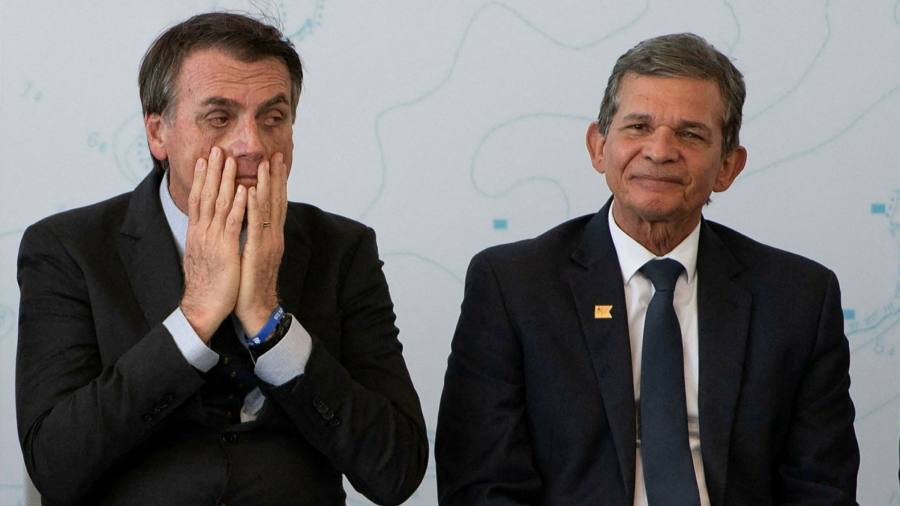Brazilian oil producer Petrobras plunged into turmoil after the country’s president, Jair Bolsonaro, abruptly announced a plan to replace his chief executive with an army general after recent protests by truck drivers over fuel prices.
The right-wing populist leader took to social media on Friday night to announce that his government intended to remove Roberto Castello Branco from the top of the state-controlled group, marking a rapid escalation in a disagreement with the government.
His place will be taken by Joaquim Silva and Luna, general of the reserve who was defense minister of former President Michel Temer.
The decision came less than a day after Bolsonaro publicly criticized Castello Branco for raising fuel prices again and warned that there would be changes at Petrobras, comments that caused the preferred shares listed in São Paulo to fall 6.6 percent on Friday. market.
It is likely to raise concerns among international investors about a more interventionist approach to the Brazilian economy and may question the government’s stated goal of seeking privatization from other state-owned companies or equity interests.
Petrobras said it received a letter from the Ministry of Mines and Energy requesting an extraordinary general meeting for the appointment, adding that the Chief Executive’s term of office would expire on March 21.
The Brazilian state has a 36.8 percent stake in Petrobras, but 50.5 percent of the voting rights. Reuters news agency reported late on Friday that the company’s executive management was considering resigning en masse after the decision.
Petróleo Brasileiro, as the group is formally known, was seen as a test case for the pro-market reform agenda of Economy Minister Paulo Guedes, who has struggled to implement significant changes since the Bolsonaro government took office, two years ago.
Behind the sudden dismissal of the CEO of Petrobras was the company’s policy of adjusting gasoline and diesel prices to those of the international market. Threats of national truck driver strikes earlier this year were partially canceled after Bolsonaro, a former army captain, personally intervened to calm the situation.
But Petrobras’ decision to raise fuel prices again this week infuriated the president, who on Thursday night promised to lift federal diesel taxes for two months starting in March.
Castello Branco, who took over as head of Petrobras two years ago, promised to keep it free from political interference, telling the Financial Times that “we don’t want to go back to that past.”
The University of Chicago executive estimated that efforts by ex-government Dilma Rousseff to subsidize diesel prices have cost Petrobras about US $ 40 billion, contributing substantially to a pile of debt that the company is still struggling to reduce.
For analysts, maintaining and strengthening the board’s independence was seen as crucial to rehabilitating the company’s image in the eyes of investors.
For much of the past decade, he was at the center of the corruption investigation at Lava Jato do Brasil, which revealed a vast scheme of bribery contracts involving various politicians and businessmen, including Petrobras executives.
“[The removal of Castello Branco] it will have a great impact on the company’s value and its credibility in the medium and long term ”, said Claudio Porto, founder of energy consultancy Macroplan. “The prognosis is a long-term downward bias.”
Additional reporting by Carolina Pulice
